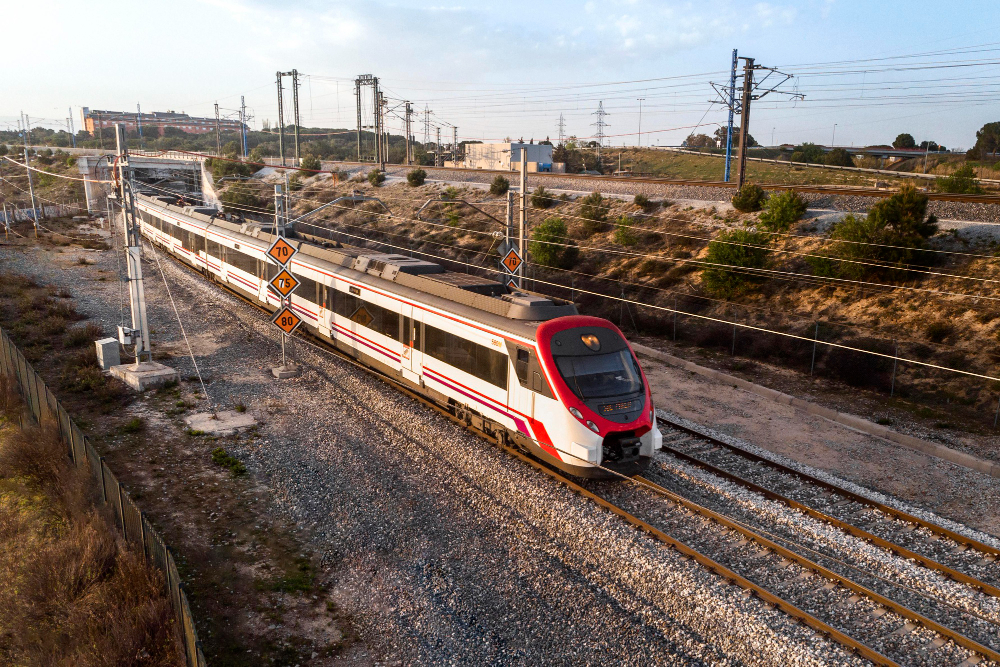New wave of Deutsche Bahn strikes to start on March 6
The German Train Drivers’ Union (GDL) has announced that it will begin a new wave of nationwide strikes starting on Wednesday, March 6. Here’s what you need to know:
Claus Weselsky announces series of Deutsche Bahn strikes
As the GDL’s peace deal with Deutsche Bahn comes to an end, the union has announced that it will begin a new series of transport strikes across the country.
Speaking at a press conference in Berlin on March 3, GDL boss Claus Weselsky said that the union would begin a new wave of industrial action on the evening of March 6. At first, only freight transport will be affected, until Thursday at 2am, when passenger transport will also be disrupted.
The strike will last for 35 hours and will affect long-distance Deutsche Bahn trains, regional trains and S-Bahn traffic across all German federal states.
More Deutsche Bahn strikes to come in the next weeks
Speaking at the press conference, Weselsky explained that the 35-hour strike beginning on March 6 would be the first of a series of strikes in the coming weeks.
Weselsky also explained that the union will no longer adhere to the rule of announcing the strikes at least 48 hours before they are scheduled to begin, meaning that Deutsche Bahn will have to be ready to launch emergency timetables at much shorter notice, and passengers should be ready to make alternative arrangements.
“We are starting a so-called wave of strikes [...] Further industrial action will follow,” and neither the start time nor the length will be announced in advance. “This means that railways are no longer a reliable means of transport,” Weselsky explained.
Why are Deutsche Bahn drivers striking again?
Like workers in many other industries at the moment, GDL members working at Deutsche Bahn are currently negotiating a new collective bargaining agreement. They are demanding three specific things: 555 euros more for employees each month, a 3.000 euro bonus to offset inflation price rises and a reduction in working hours from 38 hours to 35 per week with no cut to wages.
After a series of strikes in January, the GDL and Deutsche Bahn have been in a peace agreement, during which the union promised to withhold from strike action while negotiations continued, and both the GDL and Deutsche Bahn agreed to not make press statements about how negotiations were going.
Speaking at the press conference, Weselsky said that during the past month of negotiations, Deutsche Bahn had failed to make any offer which comes close to what employees are demanding. Deutsche Bahn is suggesting a “working time choice model” from 2026, where employees could choose if they wanted to work one hour less per week for the same pay, while employees who continued to work for that hour would get a 2,7 percent pay rise. Rather than an extra 555 euros pay each month, Deutsche Bahn has suggested a 15 percent pay rise for employees.
According to figures from Deutsche Bahn, train drivers at the company earn between 45.000 and 56.000 euros per year depending on experience. If the company, which made a profit of 626 million euros in the first half of 2023 alone, were to meet the GDL's demands, it would cost Deutsche Bahn an estimated 96 million euros in 2024 and 66 million euros every subsequent year that the collective bargaining agreement was in place.
GDL accuses Deutsche Bahn of "striking" in negotiations
During the press conference, the union also accused the transport company of breaking the peace agreement by leaking information about negotiations to Bild a few days before the agreement came to an end, to get a foot in the door and point the finger at train drivers for causing negotiations to fail.
"This new level of escalation is the responsibility of the railroad board and not the GDL or its members," Weselsky explained, accusing die Bahn of "going on strike during negotiations so that no solution could be found".
According to Deutsche Bahn, each strike day is estimated to cost the German economy a "low two-digit million figure", a fact that perhaps prompted Weselsky to remind the public that Deutsche Bahn bosses received millions of euros' worth of bonuses for 2022, despite chronic train delays and disruption for passengers.

